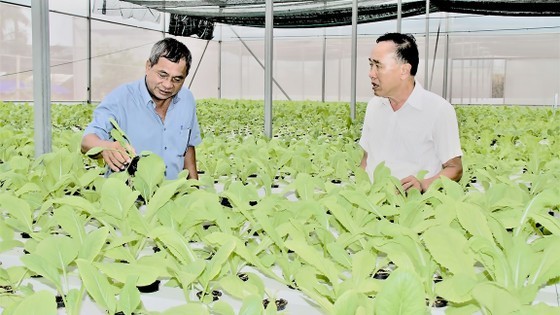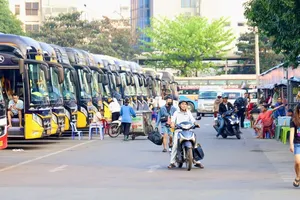 |
HCMC plans to allocate over US$24 million to support collective, cooperative economies. |
The city Department of Planning and Investment is developing a policy to support the development of collective and cooperative economies in Ho Chi Minh City for the period 2023-2026.
Specifically, the city will take more than 519.7 billion VND from its state budget to support collective and cooperative economies. More than VND456 billion – the biggest sum - is for implementing policies to attract young workers to work in cooperatives and cooperative unions.
This amount of money is used to support salaries for workers who graduate from college, university, or post-graduate to work at cooperatives and cooperative unions. Each year, cooperatives and cooperative unions can sign contracts with two university graduates - one person is responsible for technical and professional work and one person is selected for the Board of Directors.
This regulation only applies to cooperatives and cooperative unions recruiting new professional staff. Employees from 18 to 30 years old who have graduated from majors suiting the needs of the unit are eligible for the policy.
In particular, priority is given to technical staff and accounting staff to support management and apply scientific and technical advances to production and business in accordance with the needs and main fields of activity of collective economic organizations.
The policy also prioritizes people with high levels of education such as those with master's and doctorates. Members of collective economic organizations continuing studying at training establishments to achieve university degrees or higher according to the provisions of the law are also high on the policy’s priorities.
Children of members of collective economic organizations are also given priority to enjoy this policy.
It is expected that in the period 2023-2026, this policy can attract around 5,414 workers.
In addition to the above support, the city authorities also planned to spend VND 47.5 billion to support investment in infrastructure and product processing and VND7.65 billion to provide training for members and workers working in management, technical and professional expertise of collective economic organizations.
Additionally, an amount of VND6.51 billion will be used for training members and workers working in management, technical and professional expertise of collective economic organizations while VND1.32 billion will be for improving professional skills of civil servants and public employees of state management agencies on collective economy, cooperative alliances, associations, unions, and socio-political organizations, universities lecturers on collective economics and VND700 million for media.
























